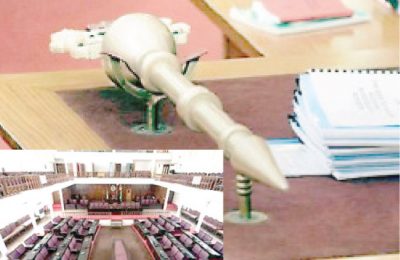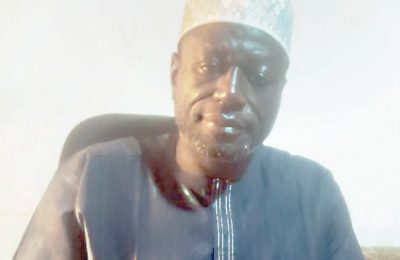
The Speaker of the House of Representatives, Hon. Femi Gbajabiamila on Friday urged election observer missions and monitors in Nigeria to get balanced views by speaking to a broad range of stakeholders before making their conclusions on the outcome of the forthcoming general elections.
He noted that being a multi-ethnic, multi-cultural, and multi-religious country, different people would naturally have different biases and push opinions that, though they represented their interests, might not necessarily be correct.

Gbajabiamila gave the charge in Abuja, during an interactive session with a delegation of the European Union (EU) Election Observation Mission to Nigeria led by Mr Barry Andrews.
While applauding the EU Mission for its keen interest in Nigeria’s nascent democracy, with a view to making elections free, fair and credible.
“When you talk economic development, social development, infrastructure, forgetting the fact that all these must be built on something, it has to be built on the credible election, which is the foundation for the development of nations.
“That is why this has to be a defining moment for Nigeria.”
While noting that Nigeria is prepared for the 2023 general elections, Hon. Gbajabiamila expressed optimism that “those who are saddled with the responsibility of making sure that we have free and fair elections will do whatever is expected of them, starting from Mr President to the National Assembly, to the INEC officials, among others.
“I want to believe the bulk has been passed on the people themselves, who have to be vigilant and to make sure that their votes count.”
He observed that the Parliament has been able through the legislative instruments (Electoral Act) good address the most contentious issues including the BVAS which is technology based.
He however acknowledged concerns raised on the deployment of the BVAS in the villages and remote parts of the country, where Electorates may not be able to access the technology.
“We have been assured by INEC that we are not the case, that there is penetration everywhere since it’s internet based. And we hope that it remains like that because one vote not counting could debase the whole process and we don’t want that,” he opined.
On the security situation, he expressed optimism “If people are able to cast their votes, be law-abiding, stay and be vigilant I don’t think the issue of security should be anything we should worry about.”
On the collection of Permanent Voter Cards (PVCs), he acknowledged “that the collection rate has been pretty low despite the high stake and opined that the exercise can be ramped up in the next few days.
“For instance, the Speaker said there were 18 political parties contesting various elective positions, beginning on February 25.”
He added that among the contestants, there were those who, by his assessment, were frontline contenders, others with their areas of strength and so on.
Gbajabiamila, therefore, urged the mission to interface not only with every political party but also with as many stakeholders as possible, adding that this would help shape the reliability of any report on election outcomes this year.
The Speaker assured the delegation that Nigeria was fully prepared for the elections and had made every possible arrangement for the process to be successful.
He stated that the Legislature, particularly the House, had hoped that ‘direct primaries’ would be captured in the law as the main method of picking political party candidates in order to transfer the power of decision-making to the majority of party members, but the movement suffered a setback.
“Nonetheless, there is no law that is perfect. We have come a long way with the current law and it is a work in progress for our electoral system,” the Speaker further said.
Earlier in his address, Head of the EU Observers Mission, Mr Barry Andrews, told Gbajabiamila that the EU Mission was happy to be invited to observe the polls, just as it had done on seven previous occasions.
“I’m delighted to lead the EU observation mission so this is our seventh mission and we are delighted to respond to the invitation from the Nigerian Government to carry out this mission with your cooperation, to support Nigerian democracy in every way that we can and to make our honest assessment.
“On the last occasion we made a series of recommendations which were well received, some of which were being implemented and I want to compliment you on guiding the electoral reforms and electoral process over the last two years, it’s been a real noble achievement,” he noted.
According to him, “no fewer than 40 long-term observers will be deployed as of this weekend in 20 teams of two, adding that the Mission will be launched formally on Monday, where the details of the methodology adopted will be unveiled.”
He explained that the Mission has already lined up some excellent meetings with the Independent National Electoral Commission (INEC), Media and Civil Society Organizations with a view to understanding some of the challenges that are ahead over the next few weeks.
Andrews also assured the Speaker that the body had its work cut out and had a reliable data-collection methodology to give a report on the outcome of the polls.
He also assured that the Mission would release a preliminary report on the elections two days after the conclusion of voting.
READ FROM ALSO NIGERIAN TRIBUNE








